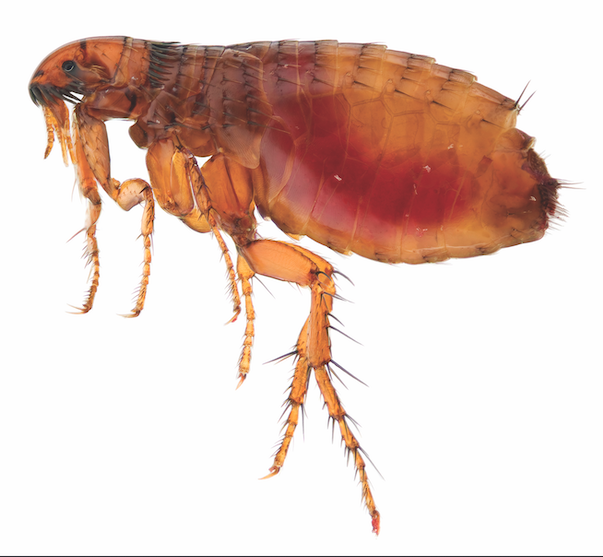The weather has warmed rapidly and with this comes the resurgence of the insects and the parasitic ones that can cause disease in your pets. Protecting your pet is of vital importance , otherwise your best friend could suffer chronic illness for the rest of its life . Today I will revisit a couple of the diseases.
Locally the most significant problem and one that can cause serious illness in your pet is canine leishmaniasis.
This disease is caused by a flagellated protozoa that is injected into dogs by Sandflies (phlebotominae), looks like a tiny mosquito. The female of this biting fly feeds on blood that it requires for egg production, however at the same time that it feeds it can infect the host with the protozoa, in a similar way that malaria is spread by mosquitos.
The protozoa can cause devastating damage to a dog, but the illness is a slow insidious disease that can damage pretty much any organ in the body, broadly speaking they can be divided into two types, the visceral type infecting the internal body organs, or the cutaneous one that infects the skin. This is a bit of a simplification as it can affect any body system and therefore can sometimes it can be a challenge to diagnose. One common complaint is that the dog ‘isn’t right’. In some cases the illness is asymptomatic until the animal becomes suddenly seriously ill , in some of these cases the dog has gone beyond the point of no return and does not respond to medical therapy.
Confirmation of the disease is done by doing a simple blood test, generally you can have the results back in under quarter of an hour.
There are various treatment regimes used in the medical therapy of infected dogs, depending on their body condition, the body system affected and on the finances available. Sometimes the dog does not respond to one treatment and may need an alternative.
What is very unfortunate about this disease is that in the majority of cases after treatment the animal goes into remission and the parasite cannot be eliminated, it remains dormant in some hidden recess of the body, usually in the lymphatic system or the bone marrow. Thanks to medical progress we can now actually look for DNA of the protozoa in the blood, so that we can check the level of infection in treated animals to make sure the parasite does not make an unwelcome reappearance.
Evidently prevention of leshmaniasis is by far the best option. Now not all dogs are at the same risk of contracting this disease so you can tailor your prevention strategy depending on the your particular circumstances.
There are two ways of protecting your pet, one is to vaccinate your pet and secondly to prevent its infection by the Sandfly.
Vaccination is a fairly recent option, it is more expensive than your standard vaccine, but be aware that the manufacturers do not recommend that you stop using ecto-parasite treatment to stop the vector.
However all pets do not require the same level of protection, the highest level must be for those dogs that are outside in gardens during the times of highest risk, dusk to dawn. Those dogs living in flats in highly urbanised areas are at a smaller risk but there is never any guarantee that a female Sandfly will not sneak in and infect your family pet, do not become complacent.
The other main ectoparasite of concern at this time of year is the common flea. Although they do not carry serious illnesses they can cause many chronic skin complaints. The exception to this is a blood parasite in cats that is spread by fleas and this can kill your pet if not diagnosed early enough.
If an animal with a flea allergy dermatitis isn’t treated they the problem can snowboard and the condition can become serious and very expensive to treat. In this day and age there is no excuse for your pet suffering from a flea problem; there are a multitude of decent products out there to prevent your pet from being infested with these blighters.
In summary go and out get your pets protected NOW!








